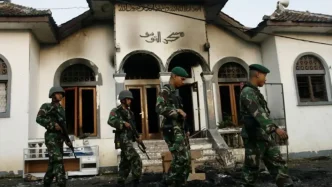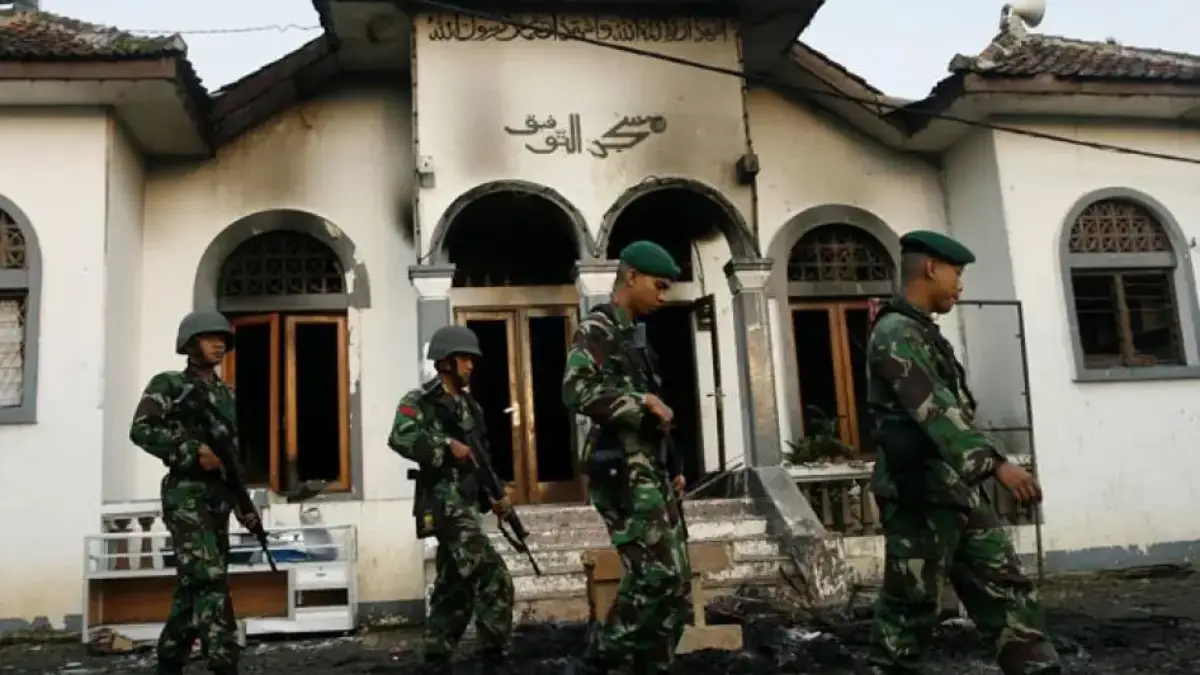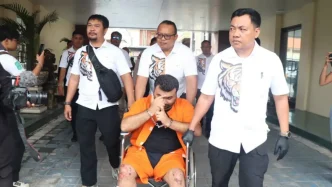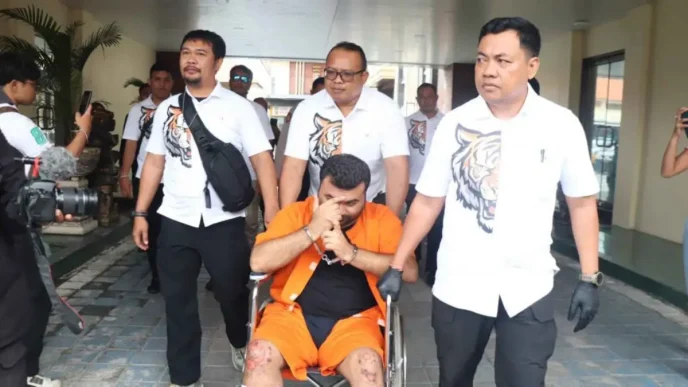Indonesia, a nation often celebrated for its cultural diversity and religious pluralism, is grappling with a disturbing surge in violence against religious minorities. The latest incident in Padang, the capital of West Sumatra, where a Christian prayer house was vandalized on July 27, 2025, has reignited urgent calls for reform. As images of shattered windows and traumatized children circulate, the government’s response—marked by expressions of regret but little concrete action—raises serious questions about its commitment to protecting constitutional guarantees of religious freedom.
A Pattern of Violence Emerges
The attack in Padang saw a mob descend on a facility used for religious education, leaving behind not just physical destruction but deep psychological scars, particularly among the children who were present during the assault. This incident follows closely on the heels of a similar attack in Sukabumi, West Java, barely a month earlier, where a Christian youth retreat held in a private residence was violently disrupted. In both cases, the perpetrators justified their actions by citing public order concerns over unauthorized religious gatherings, a pretext that masks a far deeper systemic issue.
Indonesia, the world’s largest Muslim-majority nation, is home to significant Christian, Hindu, Buddhist, and other minority communities. Yet, in regions like West Sumatra and West Java, often cited by human rights groups as among the least tolerant in the country, these communities face persistent hostility. The recurring nature of these attacks points to a troubling pattern—one that cannot be dismissed as isolated misunderstandings as suggested by Religious Affairs Minister Nasaruddin Umar in his response to the Padang incident.
Nasaruddin, who also founded the Interfaith Dialogue Society (Masyarakat Dialog antar Umat Beragama), expressed regret over the attack, noting that it has tarnished the country’s image as a peaceful, tolerant nation. He has pledged to send a team to investigate the incident in Padang, but his words echo a familiar refrain of concern without the promise of structural change. For many, such statements fall short of addressing the root causes of this violence.
A Discriminatory Legal Framework
At the heart of this crisis lies the 2006 Joint Ministerial Decree, a regulation issued by the Religious Affairs Ministry and the Home Affairs Ministry that imposes stringent requirements on the establishment of houses of worship. Under this decree, religious groups must secure signatures from at least 60 individuals of different faiths and obtain formal permission from local authorities and religious affairs offices. In areas where intolerance is deeply entrenched, fulfilling these conditions is not merely challenging—it is often impossible.
Critics argue that the decree is fundamentally discriminatory, running counter to Indonesia’s constitutional guarantees of religious freedom as enshrined in Article 29 of the 1945 Constitution. Instead of fostering coexistence, the regulation effectively empowers majority communities to veto the rights of minorities. Religious minorities, unable to secure legal recognition for formal places of worship, are forced to gather in private homes or makeshift venues. These settings then become targets for violence, often under the guise of enforcing procedural or legal violations.
The result is a vicious cycle: discriminatory policies create conditions of vulnerability, which are then exploited by those seeking to enforce religious homogeneity. The attacks in Padang and Sukabumi are not aberrations but manifestations of a broken system that fails to protect the rights of all citizens equally. Without addressing this legal framework, expressions of regret from officials risk appearing hollow, offering little solace to communities living in fear.
Government Inaction and Unfulfilled Promises
The government’s response to this escalating crisis has been criticized as inadequate. Nasaruddin’s predecessor, Yaqut Cholil Qoumas, had once promised to revise or revoke the 2006 decree, a pledge that went unfulfilled during his tenure. Now, Nasaruddin faces a critical opportunity to push for a policy that affirms rather than restricts religious freedom. However, his initial framing of the Padang attack as a potential misunderstanding suggests a reluctance to confront the deeper structural issues at play.
At the national level, President Prabowo Subianto’s silence on the matter has not gone unnoticed. As the leader of a nation that prides itself on the principle of Bhinneka Tunggal Ika (Unity in Diversity), his position on defending constitutional rights should be unequivocal. Yet, the absence of a strong public stance from the highest office risks reinforcing a perception—among both victims and perpetrators—that the state is indifferent or even complicit in the face of such violence.
Law enforcement, too, has a crucial role to play. While investigations have been promised, accountability remains elusive. Perpetrators of attacks in Padang, Sukabumi, and other regions must face justice, not only to punish wrongdoing but to send a clear message that violence against religious minorities will not be tolerated. Without such measures, the cycle of impunity is likely to persist, emboldening those who seek to undermine Indonesia’s pluralistic fabric.
The Human Cost of Inaction
Beyond the policy debates and legal frameworks, the human toll of these attacks is profound. In Padang, children attending a religious education class were left with physical injuries and psychological trauma, their sense of safety shattered in an instant. Testimonies from the scene paint a harrowing picture of fear and insecurity, emotions that now haunt minority communities across the province. These are not just statistics or isolated incidents; they are stories of real people whose lives have been upended by hatred and intolerance.
In Sukabumi, the disruption of a youth retreat held in a private home underscored the precariousness of religious practice for minorities in hostile environments. The destruction of property is only part of the damage; the erosion of trust and the pervasive sense of vulnerability are far harder to repair. For many in these communities, the question is not if the next attack will come, but when—and whether the state will stand with them when it does.
Regional and International Implications
The rise in religious violence in Indonesia also carries broader implications, both regionally and internationally. Southeast Asia, a region known for its diversity, has long grappled with tensions over religious and ethnic identities. Indonesia, as a leading member of ASEAN (Association of Southeast Asian Nations), often positions itself as a model of moderate Islam and pluralism. However, incidents like those in Padang and Sukabumi undermine this image, raising concerns among neighboring countries and international observers about the country’s commitment to human rights.
Human rights organizations, both domestic and global, have repeatedly flagged Indonesia’s struggles with religious intolerance. Reports from groups like Amnesty International and Human Rights Watch have highlighted the discriminatory nature of policies like the 2006 decree, urging reforms to align with international standards such as the Universal Declaration of Human Rights. The longer Indonesia delays action, the greater the risk to its reputation as a beacon of tolerance in a region often fraught with sectarian strife.
A Call for Urgent Reform
If Indonesia is to prevent further attacks and uphold its constitutional principles, it must move beyond statements of regret to decisive action. First and foremost, the 2006 Joint Ministerial Decree must be revisited and reformed to eliminate barriers to religious freedom. A policy that facilitates coexistence rather than division is not just a moral imperative but a practical necessity for a nation as diverse as Indonesia.
Second, law enforcement must prioritize accountability, ensuring that those who incite or commit violence face consequences. This includes not only the direct perpetrators but also any local leaders or groups who enable or encourage such acts. Justice must be visible and consistent to deter future violence and rebuild trust among affected communities.
Finally, leadership at the highest levels must speak out unequivocally in defense of religious freedom. President Prabowo Subianto has an opportunity to affirm that the right to worship safely is non-negotiable, sending a powerful message to both victims and potential aggressors. Silence or ambiguity from the state only deepens the wounds of those already suffering.
As Indonesia navigates this critical juncture, the path forward remains uncertain. The attacks in Padang and Sukabumi are stark reminders of the fragility of religious harmony in the face of systemic inequality. Whether the government will rise to the challenge with meaningful reforms or continue to offer mere words of regret is a question that looms large over the nation’s future.
















